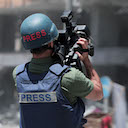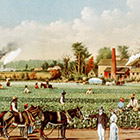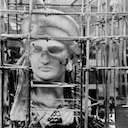The Israeli political theorist, Shlomo Avineri, a longtime friend of Dissent, died in Jerusalem on December 1. He made his reputation writing major books on Marx and Hegel, but he was never simply an academic. Throughout his life, he was …

If we ask the right questions, we might well conclude that political struggle rather than war is the better strategy for both sides in virtually all asymmetric conflicts.
We have many battles, not one, not even one at a time; they are not necessarily connected, and it is important for reasons of tactics and strategy to recognize the differences among them.

Capitalism and racism overlap sometimes, as they do today in the United States. But the overlap is circumstantial, not necessary.

Like all adjectives, “liberal” modifies and complicates the noun it precedes. It determines not who we are but how we are who we are—how we enact our ideological commitments.
Jim Rule has provided a textbook example of what I called in the last issue of Dissent “the great crossover” (“All God’s Children Got Values,” Spring 2005). The political projects that he rejects—”schemes involving vast short-term suffering on behalf of …
A quick word from a third Michael. I agree entirely with the second Michael’s response to the first, but want to add a few comments as co-editor of Dissent. Instead of arguing about the state of the left, Michael Wreszin …
When I first came to work at Dissent, Mark Levinson told me a little about the different people who worked at the magazine. When he got to Manny, he said, “You’ll like Manny. Manny’ll make you feel at home.” Then …
Every political theorist hopes that his concepts and distinctions will turn, magically, into common currency, so that men and women on the street will talk exactly as he does. And he fears at the same time that his work will …
I can’t recall a time when it was as easy as it is today to glance at the headlines of the morning paper and turn quickly to the sports pages. The presidential campaign is only the most obvious reason for …
I take it for granted that in a modern society we are all implicated in moral responsibility for what the state of which we are citizens does or doesn’t do. Thus remediable urban blight, the neglect of retarded children, the …
The United States today is an astonishingly powerful nation. Yet it is a nation increasingly unable to apply its power effectively or in a manner satisfactory either to itself or to the rest of the world. This is less because …
There is one major difficulty with Irving Howe’s statement. He fails to grasp the significance of the most important point he makes: that in Vietnam the national liberation movement was from the beginning led by the Communists. There, in a …
Five years ago it was widely believed that the British Labor Party had become a permanent minority. Unable to compete with Tory affluence, burdened with an “old-fashioned” ideology, dependent on a working class doomed to long-term numerical decline, the party …
Historical concepts always tell us as much about the men who use them as about the events they are supposed to describe. Very little is given in intellectual life; artists, writers, even social scientists must choose the way they wish …










